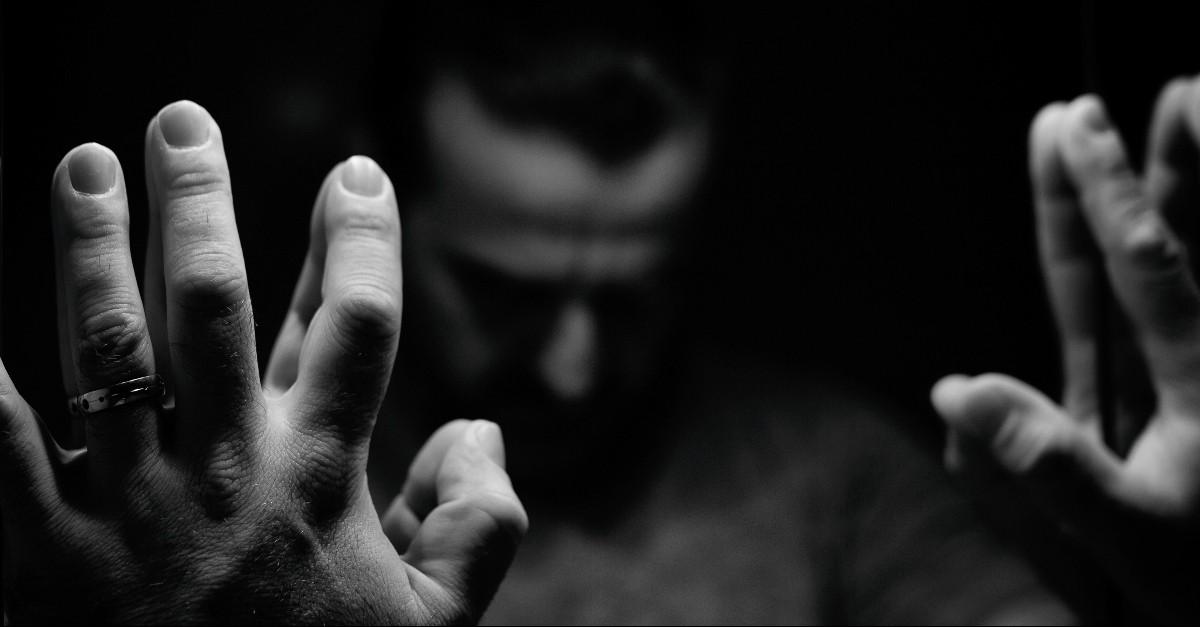
The doctrine of human depravity (also known as total depravity) teaches that, because of sin, humans are born with a natural inclination toward evil. As Charles Spurgeon said in a sermon on human depravity, “[S]in has deprived man of the principle of spiritual life, and made him a depraved and debased creature” (Metropolitan Tabernacle Pulpit Volume 7, 11 April 1861, The Spurgeon Library).
Of course, this does not mean everyone is as depraved as they could be. Lots of people can do good things and act kind toward others while still having a nature bent toward sin. We are all sinners in need of salvation.
However, there are times when we see human depravity at its worst: in wars, genocides, murders, oppression, slavery, rape, tyrannical rulers, and inventions used for the destruction of human life. We need only hear the words Holocaust, Pol Pot, and Ku Klux Klan to know that people can become filled with evil. In their descent into wickedness, they develop a disregard for human life and moral standards. They turn away from God in their rebellion.
Scripture also gives many examples of wickedness. Haman sought the lives of the Jewish people because of his vendetta against Mordecai. Jezebel ruthlessly killed the Lord’s prophets, driving many into hiding. Countless Israelites turned away from God to follow worthless gods, offering their children as sacrifices to idols. Judas betrayed the Savior.
Humans have a great capacity for wickedness, but people become slaves to evil through gradual descent. Consider the people during Noah’s day. They did not get into that state overnight – they became increasingly wicked over time as they continued to rebel against God. By the time of Noah, the people were filled with evil. The account of Genesis explains this: “The Lord saw how great the wickedness of the human race had become on the earth, and that every inclination of the thoughts of the human heart was only evil all the time” (Genesis 6:5, NIV).
My Christian ethics professor described this process of increasing degeneration and moving away from God using the memorable analogy of a ladder. We see a moral decline from one rung to the next as people turn away from the Lord and descend into greater depths of wickedness.
To understand this “ladder” of human depravity, we need to examine the first chapter in Romans. Then, we will understand the ways the wicked have become wicked.
Photo Credit: © Getty Images/dundanim

1. They Turn Away from God
All people have a common starting ground. We are all sinners who are accountable to God. Some of us might be nicer than others. Still, we are equally guilty of rebelling against the Lord (Romans 3:23). The sinful condition that Paul describes throughout Romans 1:18-32 applies to all of us, for every person is dead in their sins (see Romans 2:1-4 and Ephesians 2:1).
Where people diverge is in their response to the testimony of nature that tells us that God exists and the testimony of conscience, which tells us that we are guilty and deserving of punishment. In his epistle to the Romans, Paul wrote that all people are without excuse because of the general revelation He provides (Romans 1:19-20). Nature testifies to the truth that there is a Creator, for His attributes are visible in His creation.
When people reject God, they suppress the truth of what is seen in creation (Romans 1:18). In their decision, they turn away from God and refuse to be held morally accountable to Him.
We see this modeled in biblical history. The kings of Israel and Judah turned away from the Lord and became corrupt. Instead of doing right and upholding God’s standards of mercy and justice, they oppressed the poor, foreigners, widows, and orphans. Soon, they began to do detestable acts, such as offering their children as sacrifices to false gods and bringing idols into the temple of God (2 Kings 17:17; Jeremiah 19:5; Ezekiel 8).
People start their descent into wickedness by turning away from and rejecting the one true God of the Bible.
Photo Credit: ©Getty Images/Alexey M

2. Their Hearts Are Darkened
Turning away from God leads to further moral decline. After describing how people are without excuse because of general revelation, Paul describes the next step towards wickedness:
“For although they knew God, they neither glorified him as God nor gave thanks to him, but their thinking became futile, and their foolish hearts were darkened. Although they claimed to be wise, they became fools.” - Romans 1:21-22, NIV
Those who reject God think they are wise. They would argue that people who believe in God are foolish and simple, not keeping up with the “advancements” of our age. Yet the Lord exposes their error. Individuals who turn away from Him are foolish. No longer capable of effective or fruitful thought, their hearts become darkened.
Not only are they rejecting the truth, which is evident to all, but in their rejection of the Lord, they lose the ability to distinguish truth. In their depravity, they concoct worthless ideas. The Amplified Bible emphasizes this by explaining, “They became worthless in their thinking [godless, with pointless reasonings, and silly speculations]” (Romans 1:21).
Their hearts also become darkened, referring to their inability to heed morality. Depending on the translation, some versions refer to their hearts as “foolish” (ESV) or “senseless” (NASB). Immoral behavior no longer bothers unrepentant people as it would others. They become desensitized to standards of right and wrong.
Someone who has rejected God and declines further into depravity does not stop with mere useless thoughts. Their darkened heart and futile thoughts lead to immoral actions.
Photo Credit: © Unsplash/niklas_hamann

3. They Worship Created Things Instead of Their Creator
People will create their own gods to worship in their disregard for truth and morality. They turn to the natural world, the very thing that testifies to the reality of a Creator, to bow down to created things. Paul specifically mentions the wicked creating idols of humans, birds, animals, and reptiles (Romans 1:23).
We can see how this ladder rung is connected to the previous one. As much as wicked people believe they are wise in worshiping idols, they act foolishly. The Lord describes this absurdity in the book of Isaiah. He tells Israel that idols are made from gold and silver, fashioned by a goldsmith into the image of a “god” (Isaiah 46:6). As God told the Israelites at that time, “They lift [the idol] to their shoulders and carry it; they set it up in its place, and there it stands. From that spot, it cannot move. Even though someone cries out to it, it cannot answer; it cannot save them from their troubles” (Isaiah 46:7, NIV).
Even when a person’s idol has no physical form as a statue, picture, or carving, their “god” is still worthless. For example, someone could spend their entire life accumulating riches. Money is their idol, though they might not necessarily have a statue of a dollar or coin. Yet their devotion to money is just as foolish as someone who bows down to the image of an animal or person. In the end, money can do nothing to save that person. It will not listen or move when a person asks for its help.
Turning to idols is foolish because there is only one true living God (Isaiah 46:9). Yet, the wicked have turned their backs on God. They cannot see the truth in their senseless hearts and blinded minds.
Photo Credit: ©iStock/Getty Images Plus/MarinaZg

4. God Gives Them Over to Their Sins
Although people choose to reject God and ignore the truth, there is an element in people’s moral decline in which the Lord has a part. In His wrath against ungodliness and wickedness, God gives degenerate people over to their sin (Romans 1:18).
Three specific times, Paul mentions how God abandons the unrighteous to the full extent of their sins. This includes being given over to sexual impurity, shameful lusts, and depraved minds (Romans 1:24, 26, 28). Each of these involves taking more steps down the ladder of wickedness.
People who are unrepentant in their moral depravity will engage in sexual immorality. We should expect this since they have exchanged the truth about God for a lie (Romans 1:25). Why should they listen to what the Lord says about sexuality if they have placed themselves in His place?
In addition to being given over to sexual impurity, the Lord also abandons them to their shameful lusts. Although Romans 1:26-27 is a controversial passage in society today, and some have attempted to reinterpret it, these verses show individuals engaging in same-sex relationships. The Lord created sex with the intention of it being enjoyed within marriage, which consists of one man and one woman. Paul specifically mentions that homosexual relationships go against this created order and fall outside of what God designed (Romans 1:27).
Of course, this does not mean that people who struggle with homosexuality are worse than others or without hope. In his letter to the Corinthians, Paul notes that many believers had once engaged in same-sex relationships but were washed and saved by the blood of Christ (1 Corinthians 6:9-11). Anyone can experience Christ’s grace if they place faith in Him.
The final giving over is when the Lord abandons unrepentant individuals to depraved minds (Romans 1:28). Since they put God out of their minds, He gives them over to the full extent of their depraved thoughts. As a result, they “do what ought not to be done” (Romans 1:28, NIV).
Photo Credit: © Getty Images/simpson33

5. Their Lives Become Filled with Wickedness
Having removed God fully from their lives and been left to their inner wickedness, unrepentant people bear fruit matching the condition of their hearts. A life of rebellion against God only produces immorality—the equivalent of dark, rotting fruit. The Apostle Paul described it well when he said that the unrighteous become “filled with every kind of wickedness, evil, greed, and depravity” (Romans 1:29, NIV).
They continue to store up wrath for themselves by engaging in evil (Romans 2:5). A few examples of their depravity include murdering, gossiping, hating God, and disobeying their parents (Romans 1:29-30). No love or mercy exists inside them (Romans 1:31). Instead, wickedness becomes their way of life.
Jezebel is a prime example of a person filled with depravity. She hated God, which led her to seek out the prophets of the Lord to kill them (1 Kings 18:4). Also, she plotted Naboth’s murder so her husband could get the man’s vineyard (1 Kings 21:1-16). Ahab, a man notorious in Scripture for his vile acts, felt remorse for his part in Naboth’s death (1 Kings 21:25-26). Yet, Jezebel did not (1 Kings 21:27-29). Her name has become a byword for an evil person, such as when it was used in Revelation to refer to another wicked woman who was immoral, an idolater, and a false prophet (see Revelation 2:20).
Photo Credit: ©GettyImages/Tero Vesalainen

6. They Approve of Others Going Down a Dark Path
The last step into full moral depravity involves more than individuals engaging in immoral behavior. They are aware of the wrong they are committing and that their actions warrant punishment, but they continue to store up more wrath. In their depravity, they approve of sin and encourage others to commit similar evil acts (Romans 1:32). According to the Pulpit Commentary, this is “the climax of the picture of general moral degradation.”
Individuals with depraved minds and wicked hearts do not stop with themselves. They are like rotting apples that spoil the entire crate. So great is their delight in sin that they want others to be just as festered and decaying as themselves. No fear of divine punishment comes to mind, for they are too busy deriving pleasure from their wickedness and spreading it to others (see Psalm 10:3).
Based on this final passage in Romans 1, we can understand why people do evil acts that horrify others. Individuals with dark hearts and degenerate minds delight in their wickedness. Any sting of conscience they may have once experienced was silenced long ago. Thoughts that their actions break a code of morality or displease God do not enter their minds. They happily rebel against God in their unbelief and engage in immorality while inviting others to do the same.
As much as we would like to think that these descriptions do not refer to us, they do. At one time, we were all dead in trespasses and sin, members of the dominion of darkness (Ephesians 2:1; Colossians 1:13). If we still want to deny it, we need only look to the cross. As Morton T. Kelsey wrote, “The cross is crucial because it shows what possibilities for evil lie hidden in human beings” (“The Cross and the Cellar” in Bread and Wine: Readings for Lent and Easter. The Plough Publishing House, 2003, p. 206). People just like us called out for Christ’s death and nailed Him to the cross. We, too, are responsible for our sins and put Him there.
Yet, on the cross, we see the answer to our wickedness and the evil in the world: Jesus, the sinless Son of God, taking the place of sinful humankind. He bore our punishment so we could be saved from our sins.
The wicked become wicked but do not have to remain in the darkness. Jesus does not make us climb back up the ladder as if we could somehow earn our salvation. He comes to us and pulls us out of the pit into the brightness of new life. In that way, the wicked can become the redeemed and righteous.
Photo Credit:

Originally published Wednesday, 27 March 2024.
